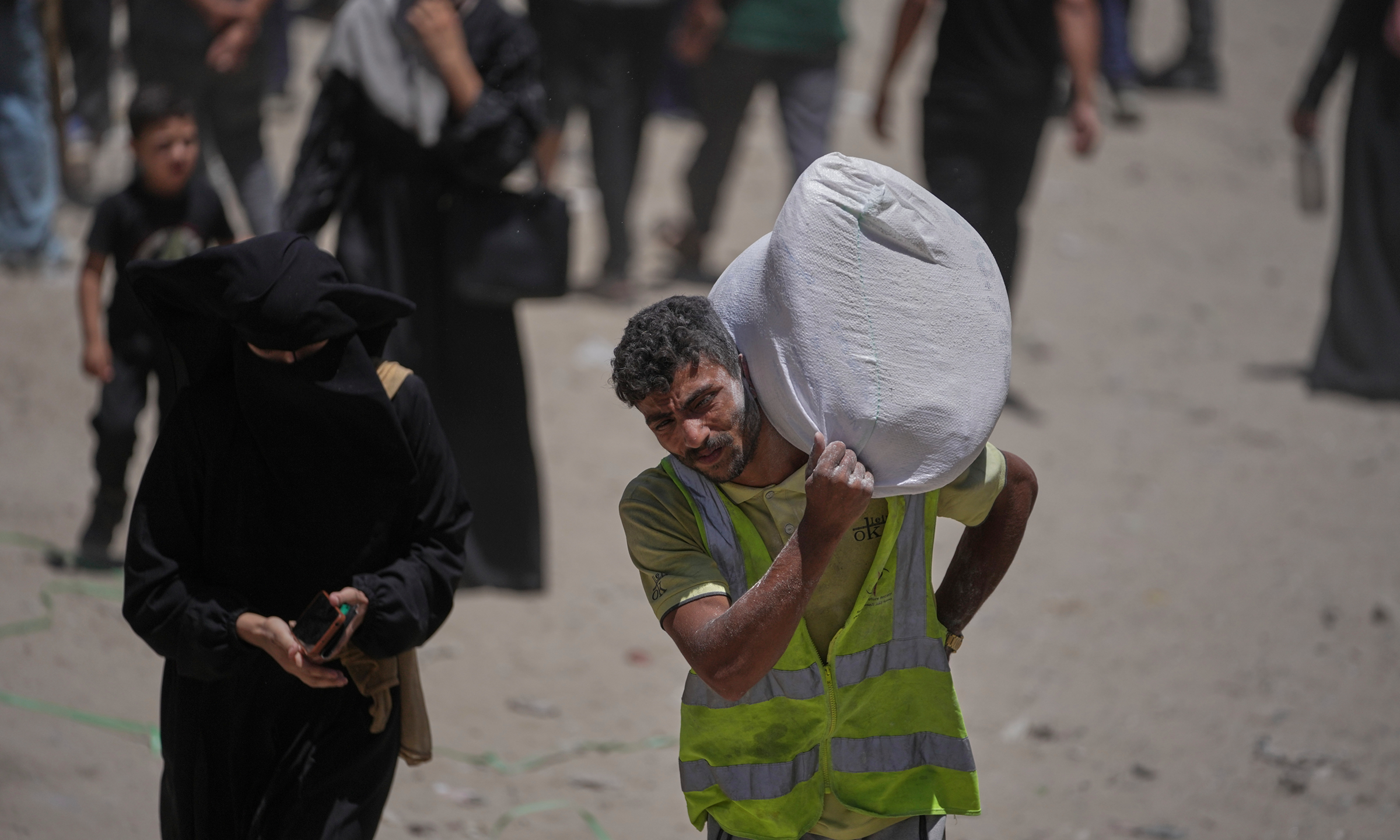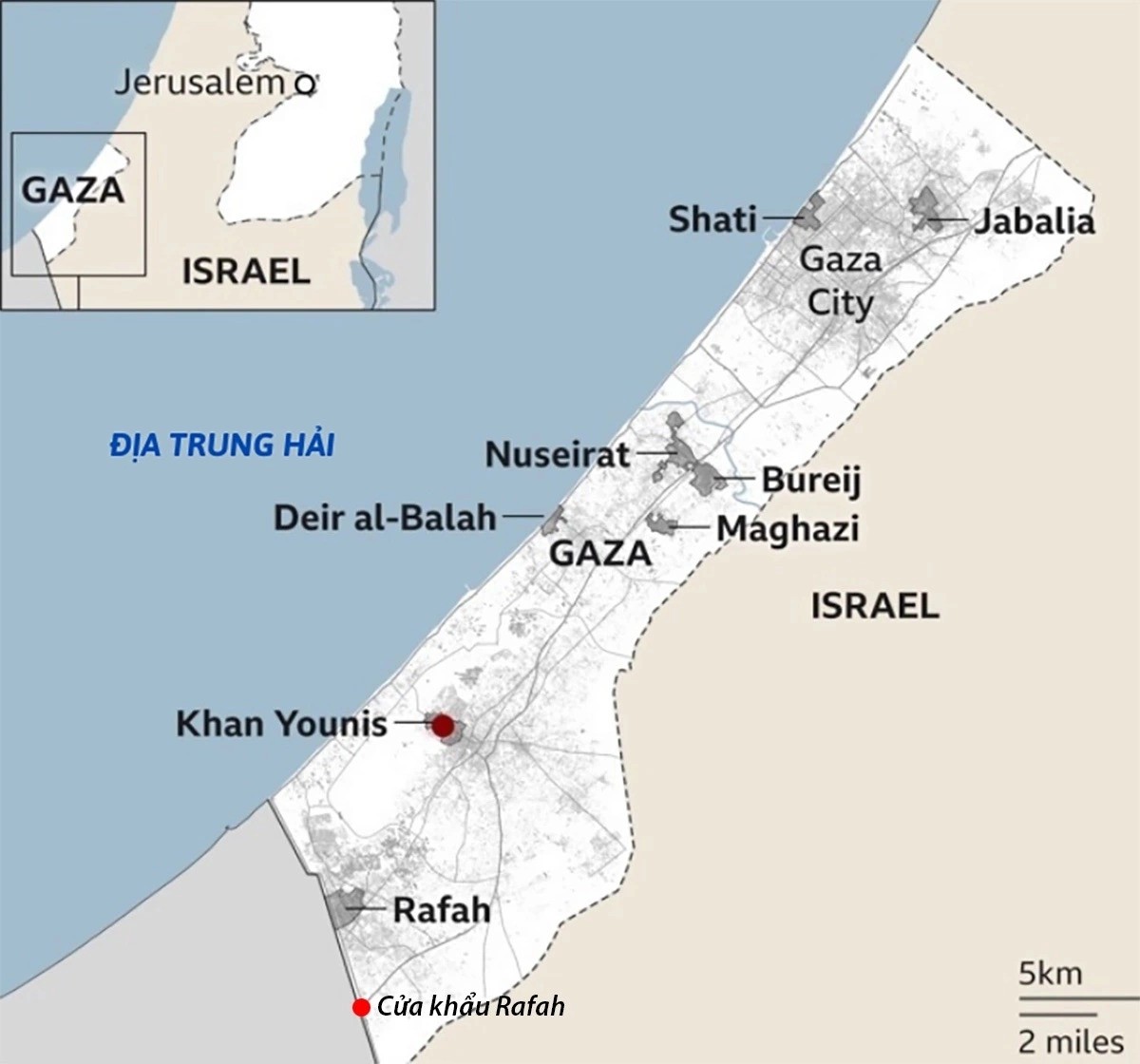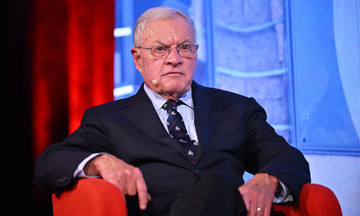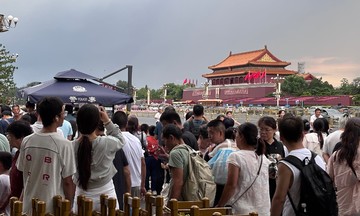Palestinian officials familiar with the negotiations between Israel and Hamas in Doha, Qatar, on the evening of 11/7 told the BBC that the dialogue is on the brink of collapse. After eight rounds of indirect talks, the two sides remain deeply divided on several key issues.
They said the most recent rounds of talks focused on two main issues: the mechanism for distributing humanitarian aid in the Gaza Strip and the extent of the Israeli Defense Forces (IDF) withdrawal.
Hamas's position is that aid should be allowed into the Gaza Strip and distributed through United Nations agencies and international relief organizations. Israel, however, wants aid to continue to be distributed through the Gaza Humanitarian Fund (GHF), an organization backed by Israel and the US.
According to mediators, the two sides have made some progress in narrowing the gap on this issue, but have yet to reach an agreement.
 |
Palestinians carry sacks of donated flour in Gaza City on 12/7. Photo: AP |
Palestinians carry sacks of donated flour in Gaza City on 12/7. Photo: AP
Regarding the withdrawal of troops, the Israeli delegation stated in the fifth round of talks that Tel Aviv would maintain a limited "buffer zone" inside the Gaza Strip, with a depth of 1-1.5 km.
Hamas initially considered this proposal a potential basis for compromise. However, the map the armed group later received showed that Israel planned to maintain a much deeper buffer zone, up to 3 km in some areas, and would continue a long-term military presence in most of the Gaza Strip.
Specifically, the Israeli army would maintain forces throughout the southern city of Rafah, 85% of Khuzaa village east of Khan Younis, most of the northern towns of Beit Lahia and Beit Hanoun, in addition to eastern Gaza City neighborhoods like Tuffah, Shejaiya, and Zeitoun.
Hamas officials consider the information on the map to demonstrate a lack of good faith from Israel and further erode trust between the two sides.
Palestinian officials also accused the Israeli delegation of trying to delay negotiations to create a positive diplomatic atmosphere for Israeli Prime Minister Benjamin Netanyahu's recent visit to the US. One official said Israel deliberately sent a delegation to Doha without the authority to make decisions for this purpose.
"They were never serious about the dialogue," a senior Palestinian negotiator said. "They used the talks to pretend there was progress."
This official accused Israel of pursuing a long-term strategy to force Gaza residents to relocate, under the guise of a humanitarian plan. He referred to the July 7 statement by Israeli Defense Minister Yoav Gallant that he had ordered the army to prepare a plan to build a new tent city in Rafah.
This would initially house about 600,000 Palestinians before expanding to accommodate all of Gaza's more than two million residents, according to Gallant. Local residents would be subjected to security checks to enter and would not be allowed to leave afterward.
"The purpose of concentrating civilians near the Egyptian border is to facilitate their expulsion, through the Rafah crossing into Egypt or by sea," he said.
 |
Location of cities in the Gaza Strip. Graphic: BBC |
Location of cities in the Gaza Strip. Graphic: BBC
Critics, both domestic and international, have condemned Israel's proposal, calling it a plan to build "concentration camps".
The Palestinian side is calling on the US, Israel's ally, to intervene more forcefully to pressure Tel Aviv to make real concessions. Mediators warn that if Washington does not act, the dialogue will completely collapse.
Before leaving the US on 10/7, Prime Minister Netanyahu remained positive, expressing hope that the two sides would reach an agreement "in the next few days".
Pham Giang (According to BBC)












